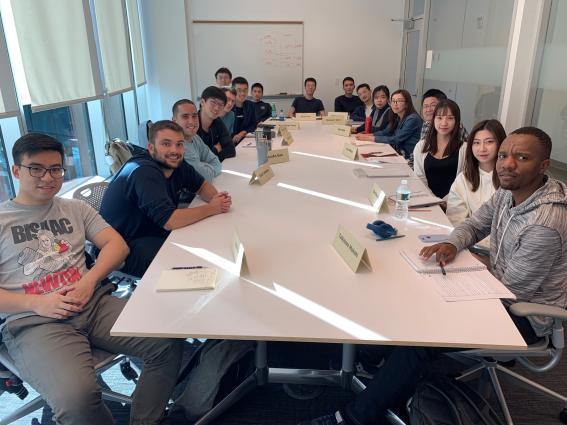Isenberg's Master of Finance in Alternative Investments Begins 2nd Year
September 28, 2020

The MFAI program, emphasizes Liang, leverages the finance department’s exceptional strengths in derivatives and other alternative investments. Most of Its students, he adds, have nonfinancial backgrounds in business, economics, the sciences, and technology. They comprise UMass undergraduate and graduate alumni and additional students recruited by Liang from China. “Ours is the first program of its kind,” he underscores. “We continue to adapt it to make it more market driven and competitive.”
Breaking New Ground
Isenberg’s one-year Master of Finance in Alternative Investments (MFAI) is a natural fit for the school, playing to its world-class strengths in derivatives and alternative investments. Isenberg is the home of the Center for International Securities and Derivatives Markets (CISDM), which partners with the profession’s organization—the Chartered Alternative Investment Analyst Association (CAIA).
After three years of preparation and extensive recruiting on the UMass Amherst campus and overseas, the on-campus MFAI program welcomed its first class in September 2019 (pictured). The cohort comprised UMass Amherst alumni with undergraduate and graduate degrees in business, economics, the sciences, and technology. It also included students from China, the upshot of personal canvassing at Chinese universities by the program’s director, Bing Liang.
To gain their MFAI degrees, students complete ten courses—four in both the fall and spring semesters and two in the summer. They build a conceptual foundation with courses in corporate finance, business data analysis, derivatives strategies and risk management, and alternative investments. In the spring, they take courses devoted to hedge funds, private equity and venture capital, emerging markets, and financial sustainability and governance issues. The final two course titles, in the summer, speak for themselves—Real Assets: Real Estate, Infrastructure and Beyond and Managing the Managers: Asset Allocation, Funds of Hedge Funds & Due Diligence.
Alternative investments is the fastest-growing asset management subdiscipline, both in the U.S. and overseas, emphasizes Liang. Isenberg’s rigorous program, he adds, confers differentiating skills that can markedly accelerate career advancement. “There are hundreds of finance programs worldwide, but we stand alone in our alternative investment focus,” he observes. “Our faculty and resources are unparalleled.”